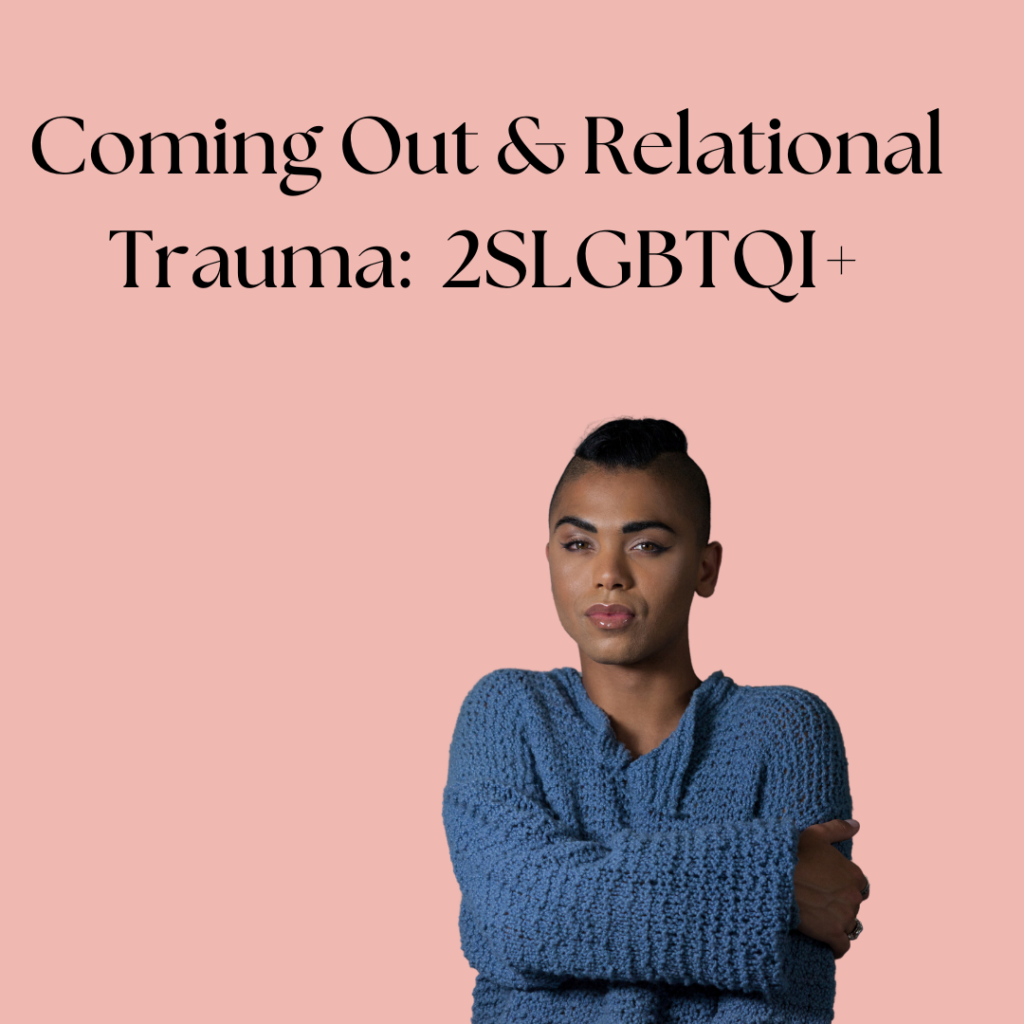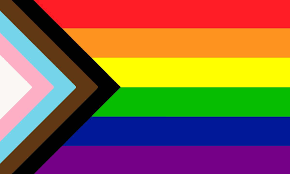“If I wait for someone else to validate my existence, it will mean that I’m shortchanging myself.” – Zanele Muholi
Relational trauma in the context of coming out as 2SLGBTQI+ (Two-Spirit, Lesbian, Gay, Bisexual, Transgender, Queer, Intersex, and other diverse sexual orientations and gender identities) is described as the psychological and emotional distress individuals in this community may experience caused by negative reactions, discrimination and rejection from loved ones and their broader social circles once they reveal their sexual orientation or gender identity
Coming out is a deeply personal process that also leaves one feeling very vulnerable. Once someone comes out as 2SLGBTQI+, they are disclosing a key aspect of their life and identity which may not “agree” with societal norms or the expectations of their immediate environment. Unfortunately, not all individuals get positive and accepting feedback from others when they come out, and this can lead to several forms of relational trauma. This trauma from the coming out process manifest in different ways such as:
Internalized Stigma: negative messages and attitudes they come across may lead to individuals internalizing the negative beliefs about their own identities, which can have long-term impacts on their mental health and well-being.
Emotional Distress: negative reactions and hurtful comments from others can possibly cause emotional distress, that include feelings of shame, guilt, anxiety, depression, and low self-esteem.
Discrimination: those who come out may face discrimination, stigma and prejudice from their loved ones or in their social circles. These factors can lead to loss of trust and feelings of unworthiness.
Rejection: some individuals may be rejected by their families, friends or communities because of their sexual orientation or gender identity. This rejection can lead to feelings of isolation.
It’s important to understand that not all coming out experiences result in relational trauma as many individuals are lucky enough to have supportive networks that can buffer out negative outcomes. Building awareness, empathy and acceptance within families, communities and society is crucial to lessen the potential for relational trauma among 2SLGBTQI+ individuals during the coming out process. Supportive mental health services and community resources can also play a positive role in helping individuals understand the challenges and emotional impacts of coming out.
If you are interested in booking an appointment with Queer therapist, Tara Salehi Varela & Randall Gutierrez are accepting new clients.




